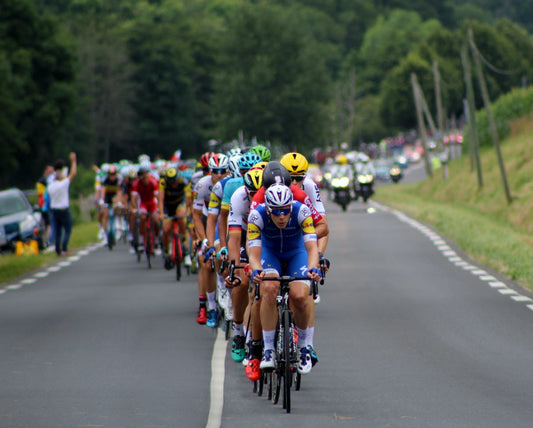Gron-vwel-tah
Noun, Proper Noun
A multi-stage bicycle race in Spain and surrounding countries
Example usage: 'I'm training for the gran-vuelta this summer.'
Most used in: Spain and its surrounding countries.
Most used by: Professional and amateur cyclists.
Popularity: 8/10
Comedy Value: 4/10
Also see: Tour of Spain, Vuelta a España, La Vuelta, La Vuelta Ciclista a España,
What is a Gran-Vuelta?
A Gran-Vuelta, or Grand Tour, is a multi-stage bicycle race that is held annually in Europe. It is one of the most prestigious cycling events in the world, and is the most important event in the cycling calendar.
The most well known Gran-Vuelta is the Tour de France, which was first held in 1903. Other major Gran-Vueltas include the Giro d’Italia and the Vuelta a España. These three races are collectively known as the Grand Tours.
Gran-Vueltas typically consist of 21 stages, with the race lasting three weeks. The stages vary in length, ranging from short individual time trials to long mountain stages. The overall winner of the race is the cyclist who has the lowest cumulative time over the three weeks.
The Tour de France is the most popular of the three Grand Tours, with an estimated 3.5 billion viewers in 2018. The Giro d’Italia and the Vuelta a España also attract large audiences, with 3 billion and 1.3 billion viewers respectively in 2018.
Gran-Vueltas are some of the most challenging and prestigious cycling events in the world, and they attract some of the best cyclists from around the world. With the combination of individual stages and the overall race, the competition is intense and often unpredictable.
.The Origin of the Term 'Gran-Vuelta' in Cycling
Gran-Vuelta (or Grand Tour) is a term used in cycling to refer to three major multi-stage races: the Tour de France, Vuelta a España, and Giro d'Italia. The term was first used in the early 1900s when the Tour de France and Giro d'Italia were both established in 1903 and 1909 respectively. It was later applied to the Vuelta a España when it was established in 1935.
The term is derived from the French 'grande boucle' which translates literally to 'big loop'. This term was used to refer to the Tour de France, which is a multi-stage race that circumnavigates the entire country. The term was later adopted for the Giro d'Italia and Vuelta a España when they were established.
The term 'Gran-Vuelta' is now used to refer to the trio of races that make up the major cycling events. It is a term that has been used in cycling for over a century and has become synonymous with the world's biggest cycling races.












